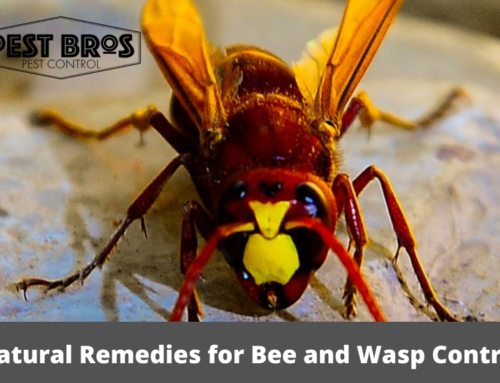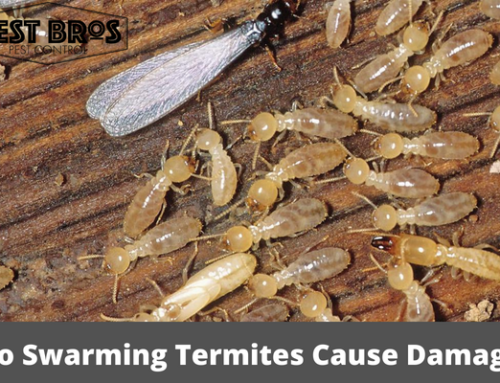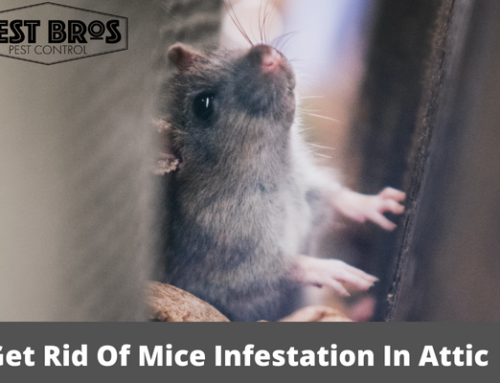

How to Survive Pests and Texas Summer Heat
It’s summertime and that means extreme temperatures, pests, and plenty of outdoor activities. It can be difficult to survive the heat and keep your home or business pest-free at the same time. Whether you’re dealing with mosquitoes, ants, or other insects, it can be a challenge to keep them at bay. However, with a little preparation and knowledge, you can have a pest-free summer without breaking a sweat! In this blog post, we will discuss how to beat the heat and survive pests this summer.
We’re all aware that insects thrive during the summer when it’s hot outside. Insects are cold-blooded, which means their body temperatures vary with the weather — a fact that contributes to their success in heat environments and failure in cold ones. The warmth of the environment is what attracts insects; allowing them to breed faster and iterate sooner.
All of these phenomena can lead to some disastrous outcomes:
- An increased insect population
- Rapid breeding and a fast insect life cycle
- Lower crop production
- More infestations in households.
Any one of these problems is enough to make summer a nightmare, but fortunately, there are ways to prevent them!


Here are our top tips for surviving pests and extreme summer heat:
- Keep your home or business clean – This will remove any potential food sources that insects may be attracted to.
- Make sure all food is properly sealed and stored – Insects are attracted to food, so it’s important to make sure they can’t get to it.
- Eliminate hiding spots – Remove any clutter or debris that insects could use to hide.
- Use air conditioning and fans – Insects are attracted to heat, so keeping your environment cool will help keep them away.
- Insect-proof your home or business – Install screens on doors and windows, and seal any cracks or holes that insects could use to enter your home or business.
- If you have any plants in your home, make sure to water them regularly. Dry, wilted plants are more likely to attract pests.
DIY Pest control and summer heat
If you’re considering taking on the task of pest control yourself, be sure to do your research and understand the product you’re using. Pesticides can be harmful if not used correctly, so it’s important to follow the instructions carefully. Applying pesticides in the heat of the summer is also not advised. The heat can cause the chemicals to break down and become less effective. It can also be dangerous to apply pesticides when it’s extremely hot out, so be sure to take precautions if you do decide to tackle the job yourself.


When it comes to applying pesticides, timing is everything. You want to make sure that you’re not applying them in the peak of heat, as this can cause damage to the plants. Instead, try to apply them in the early morning or evening hours. This will help to reduce the risk of plant damage and will also give the chemicals time to work.
If you see symptoms of plant damage and you think it may be due to a chemical, the first thing to do is look at the timing of when the symptoms first appeared. If it was within a few days to a week after you or someone else applied a chemical, there is a good chance that the damage is from the chemical. Next, look at the patterns of damage on the leaves and fruit. If they are more uniform or “symmetrical,” it is more likely that the damage is from a chemical.
Must Read About: Why do I have Ants in my Houston Home?
Plant disease, hungry Insects, or chemical damage?
The most important factor in distinguishing between plant damage from chemicals and that from disease or insects is the timing of when the symptoms first appear. Plant injury from chemicals usually occurs within a few days to a week after application, whereas insect or disease damage often takes longer to show up. In addition, the patterns of damage on leaves and fruit are often diagnostic. For example, damage from chemicals is often more uniform or “symmetrical” than that from insects or disease, which is usually more random.


If you are still not sure, the best thing to do is to contact your local Pest Bros office or a plant diagnostic laboratory for help in identifying the cause of the damage. They will likely need to see pictures of the damaged plants as well as information on what chemicals have been applied and when. With this information, they should be able to help you determine if the damage is from a chemical or something else.
If you do find that the damage is from a chemical, there are a few things you can do to prevent it in the future. First, make sure to follow the label directions when applying chemicals. This includes using the correct amount of product and applying it at the right time of day. Second, avoid applying chemicals during the hottest part of the day when plants are under stress and more likely to be damaged. Finally, water plants thoroughly before and after applying chemicals to help reduce the risk of damage.
Better safe than sorry!
If you have a pest problem, your best bet is to contact a professional pest control company like Pest Bros! We have the knowledge and experience to safely and effectively get rid of your pests, so you can enjoy your summer worry-free. Contact us today to learn more about our services!
By following these tips, you can have a pest-free summer without any extra stress. So go out and enjoy the warm weather — your home or business will be waiting for you, free of pests!




